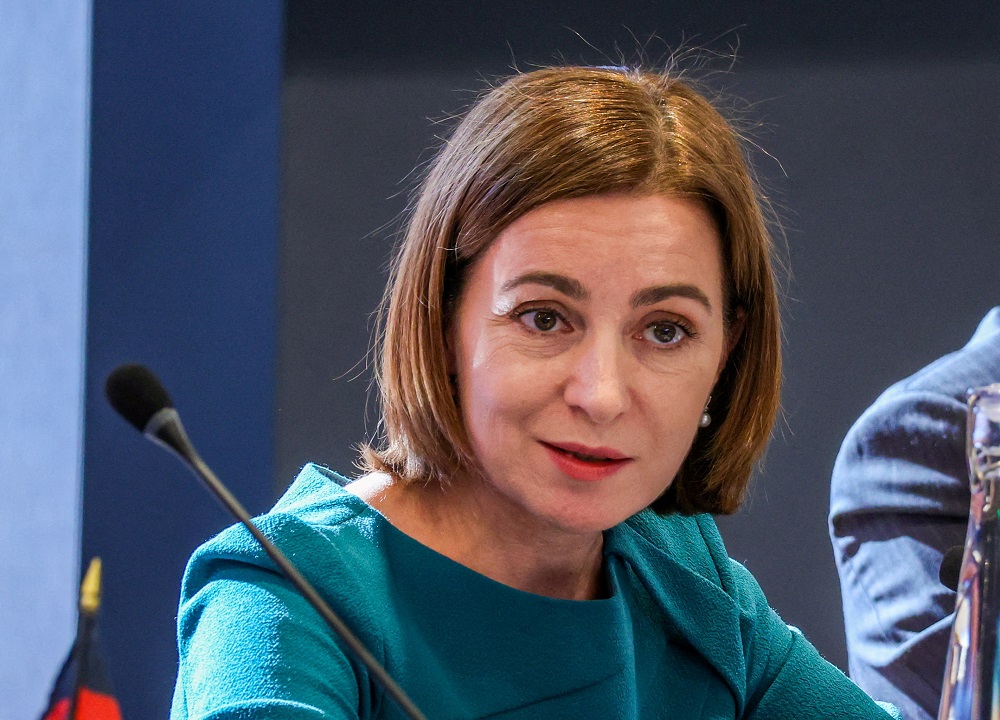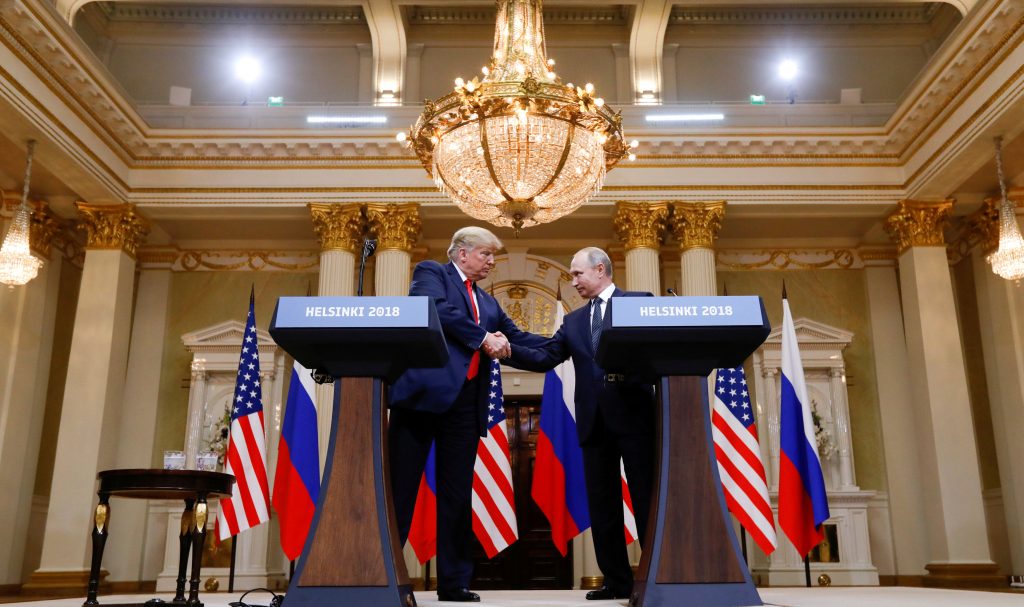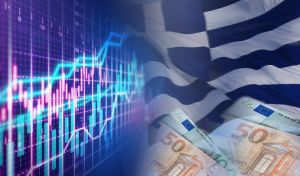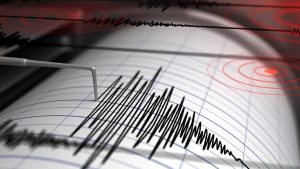Where do you see the war in Ukraine going from here, and how is the conflict affecting Moldova, the country you lead?
We have strongly condemned Russia’s war against Ukraine since day one. It’s unacceptable in a rules-based international order for any country to bluntly invade another neighboring state, just because it can. Ukraine’s strength in resisting Russia’s aggression is truly inspiring to us. Ukrainian leaders, soldiers, and citizens are standing up against this unjust and irrational war, and we stand alongside them in solidarity. We recognize that, by defending their own freedom, independence and territorial integrity, Ukraine is also defending Moldova. We owe a great deal of gratitude to our Ukrainian friends.
Russia’s aggression doesn’t just stay within Ukraine’s borders. The war has brought serious challenges to our doorstep. We faced a big influx of Ukrainian refugees. The disruption of trade routes and complicated logistics led to higher prices for goods. Russia’s gas blackmail and skyrocketing energy prices caused a sharp rise in inflation, which reached almost 35 percent last year. Our economy shrank by 6 percent in 2022. We have seen staged protests paid for with Russian money to destabilize the country from within, using corrupt political proxies interested in stalling the reform process and holding Moldova back. These difficulties highlighted the need for us to become more resilient in the face of external shocks and domestic vulnerabilities. We started investing in our energy security, modernizing our army and police, and strengthening the capacity of our institutions to withstand these challenges.
You have managed to achieve EU candidate status for Moldova. How do you see this process proceeding from here, especially after the informal dinner hosted by the Greek Prime Minister in Athens?
Moldova’s citizens have made it clear: we want to be part of the free world, not a domain under anyone’s control or a gray zone. In a powerful show of unity, nearly one hundred thousand people gathered in National Assembly Square last May to confirm their unwavering support for Moldova’s European future.
Guided by this resolute mandate, we are pushing ahead with reforms and working to initiate EU accession talks as soon as possible. This will solidify our path toward full EU membership and is an investment in the shared stability of our continent.
I’m thankful to Prime Minister Mitsotakis for hosting this important gathering that brought together the Western Balkans, Ukraine, Moldova and EU member states and institutions. This discussion about enlargement proves we have support within the European family of states and institutions, illustrating our collective commitment to peace and security on a prosperous continent.
What do you think were the most significant outcomes of this meeting? Do you think the debate on EU enlargement has gained positive momentum now?
We do view a revival in the discussions on enlargement since Ukraine, Georgia and Moldova applied for EU membership last year as a result of Russia’s invasion of Ukraine. We are aware that these discussions were triggered by the geopolitical earthquake in the EU’s eastern neighborhood. EU leaders generally agree that the EU should help its eastern neighbors to get stronger and stand up against Russian control. Enlargement is the only way to stabilize the region and help us preserve our democracies. Russia will continue to be a source of instability for many years to come. Enlargement is a much-needed investment in our shared security and in stronger democracies.
We know that enlargement is a two-way street. We know that becoming a full member of the EU will take time. We’re working hard and not taking shortcuts. And the EU should do the same, to strengthen itself from within. Meanwhile, we are building a closer relationship as we navigate the pre-accession journey.
We’ve discussed the importance of accelerated integration, especially of our economies. We’d like to see Moldova granted […] access to the EU Single Market in the payment area. We’d like to see the full liberalization of the tariff rate quotas for Moldovan agricultural products, and on a permanent basis. We would like to participate as observers in the EU Council’s meetings, and to be included in the workings of various EU agencies. The more candidate countries are socialized into the processes of the EU before they become a EU member state, the smoother the transition will be once we become full members.
In Athens, you had a bilateral meeting with the Greek PM, who also announced his intention to open an embassy in Moldova. What was your take on this meeting?
Greece is a good friend and a reliable partner of my country. President Sakellaropoulou has visited Moldova twice this year. This is my second visit to Greece in less than two years. Our bilateral relations are becoming stronger than ever. We have increased our cooperation in the energy sector, and we will continue to do so in the future. We look forward to attracting Greek investors to Moldova. We have also discussed the possibility of Greece investing in the reconstruction of southern Ukraine from Moldova. We need to have direct flights connecting our capitals. Having an embassy means we can talk more, work together more, and bring our countries and people closer.
Moscow is trying to destabilize Moldova. There is also a separatist movement, while Russian forces are active in the Transnistrian region. On top of this, Moldova seems divided between those who favor European integration and those who lean toward Moscow, while crucial reforms have still to be implemented. How are you navigating this complex situation as you guide your country toward membership of Europe, and potentially of NATO?
Moldova stands strong at the forefront of the fight for democracy. In the last year, we’ve become much stronger. This has given us the power to hold the line and counter the mix of tactics Russia is using to destabilize us, derail our EU accession, and bring us back into its orbit.
In the energy field, we haven’t just survived—we have progressed. In less than a year, we managed to diversify our gas supply. Our connection to the continental European grid and our close relationship with Romania has given us the power to handle situations like Russia trying to control our energy supply.
We’re also strengthening our economy. Two-thirds of our exports go to EU markets, our biggest trading partner. We managed to bring inflation down to 10 percent in July. Moody’s, a respected financial group, improved their outlook for Moldova, which proves our resilience.
On the international stage, we’re speaking up and making ourselves heard. We hosted the second summit of the European Political Community, and we’re becoming a reliable partner in security matters.
Our people stand together in their desire for sustainable peace and prosperity. This can only become a reality within the European Union. There is no other option for my country. A stronger, more democratic Moldova, closely connected to the EU, means a more resilient European family, capable of withstanding the challenges that transcend the borders of one country—be they climate change, organized crime, corruption, or migration.
The wishes and commitment of our people for EU membership are clear. The hybrid tactics Russia uses against us will not work. We won’t give in: we’re determined, and growing stronger, and we have the support of our European friends and partners.



